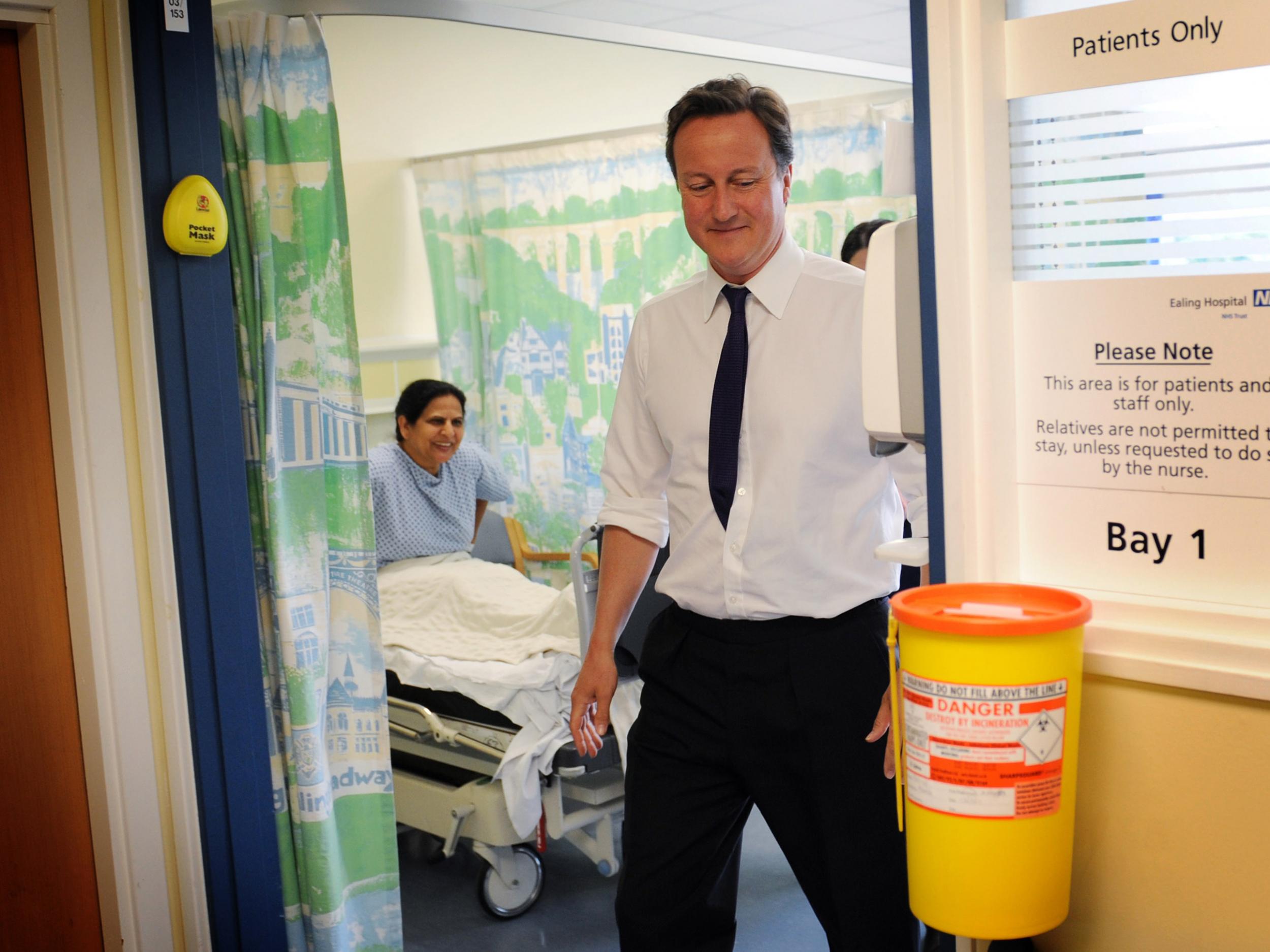Former Tory government health adviser joins US firm involved in NHS privatisation
Theresa May says NHS 'is not for sale' in response to concerns health service could be included in post-Brexit trade deal between US and UK

Your support helps us to tell the story
This election is still a dead heat, according to most polls. In a fight with such wafer-thin margins, we need reporters on the ground talking to the people Trump and Harris are courting. Your support allows us to keep sending journalists to the story.
The Independent is trusted by 27 million Americans from across the entire political spectrum every month. Unlike many other quality news outlets, we choose not to lock you out of our reporting and analysis with paywalls. But quality journalism must still be paid for.
Help us keep bring these critical stories to light. Your support makes all the difference.
A former Government health adviser has joined a US firm involved in NHS privatisation – a move campaigners say demonstrates the “wafer-thin partition” between Tory policy makers and the private health industry.
Nick Seddon, who was David Cameron’s Special Adviser for Health, became Executive Vice President of Optum just four months after he left his political role in July last year, reported Vice.
On Wednesday, Theresa May told Parliament the NHS “is not for sale and it never will be” in response to concerns the health service could form part of a post-Brexit trade deal between America and Britain.
Labour had warned a rushed trade deal between the UK and US could become “a Trojan horse for NHS privatisation”, with insurers and private health companies given the opportunity to provide NHS services.
For-profit health management company Optum is part of multinational insurance firm UnitedHealth Group, which made more than $8.4bn (£6.7bn) in 2015, according to The Guardian.
The head of NHS England, Simon Stevens, is also a former UnitedHealth executive.
Optum already provides 156 NHS organisations, which it calls its “partners”, services such as contract negotiations and medication management.
The outsourcing of hospital support services in this way is highly contentious. Supporters of privatisation believe it saves money and improves efficiency, while critics say it can lower standards of care and goes against the founding principles of the NHS.
A policy change made by David Cameron’s government in 2014 meant Mr Seddon’s move to the private sector did not need to be vetted for conflicts of interest by a semi-independent advisory committee, as was previously the case.
Instead his new appointment was approved by the Cabinet Office, which did so on the condition he did not lobby the UK Government on behalf of Optum in his first two years in the role or “draw on privileged information available to him as a Crown servant”.
International trade secretary Liam Fox has also ruled out the inclusion of access to the NHS in future negotiations. “It is never part of our approach in these multilateral agreements… to sacrifice the right of governments to regulate public services,” he said.
But Alan Taman, of campaigning groups Keep Our NHS Public and Doctors for the NHS, said Ms May’s comments were “about as convincing as her predecessor’s remarks that the NHS was safe in Tory hands.”
“Ms May, the Americans are already here. Private healthcare USA already has eyes on the NHS. And your government is hastening its demise,” he told The Independent.
Mr Taman said Mr Seddon’s new role showed "the wafer-thin partition between the previous and this government’s closest advisers on health and the private healthcare industry, with its overriding desire to cherry-pick the NHS.”
“The links between private healthcare firms and this government’s callous disregard of the growing chorus of anger and alarm over the state of the NHS should be as glaringly obvious as they are blatantly wrong to anyone,” he added.
Mr Seddon, who was Mr Cameron’s health adviser from 2013, was formerly head of communications at Circle Health, which became the first private healthcare company to run an NHS hospital, Hinchingbrooke in Cambridgeshire, in 2011.
However, the hospital was handed back to the health service in March 2015 after it was branded “inadequate” by the Care Quality Commission.
Subscribe to Independent Premium to bookmark this article
Want to bookmark your favourite articles and stories to read or reference later? Start your Independent Premium subscription today.
Join our commenting forum
Join thought-provoking conversations, follow other Independent readers and see their replies
Comments